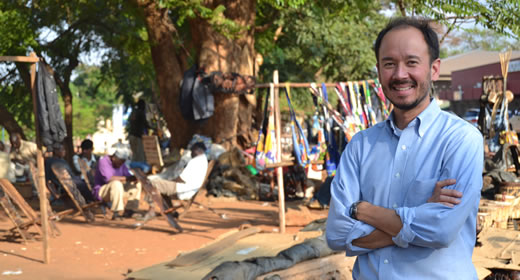
Dean Yang’s research is featured in “More people in the developing world are getting bank accounts, but there’s an asterisk on that progress,” an article by Jonathan Cohn in today’s Huffington Post. Cohn is referring to a new report from the World Bank which suggests that 500 million more people have access to banking services.
“If you don’t follow development issues, that might seem like a strange statistic to study,” writes Cohn. “It isn’t. Banking is a marker for prosperity, since people don’t need it until they have some money in the first place. Perhaps more important, banking is also a source of prosperity—and the benefits that go with it….”
Cohn quotes Dean Yang, associate professor of public policy and economics, who explains that formal savings have "positive causal effects on household development outcomes." To illustrate, Cohn cites two of Yang’s randomized-controlled trials: “Facilitating savings for agriculture: field experimental evidence from Malawi” and “Raising returns, managing risk: a randomized experiment on combining input subsidies with financial services interventions.”
The asterisk—an important one—refers to the fact that many more men have access to banking accounts than women. “Access to banking can be particularly important for women,” Cohn writes, “both because it allows them to establish autonomy and because, with control of money, they tend to make decisions that are better for families.”
Dean Yang is co-director of the Ford School's International Policy Center and an associate professor of public policy and economics. His research, designed to address global poverty, focuses on international migration, microfinance, health, corruption, and the economics of disasters.